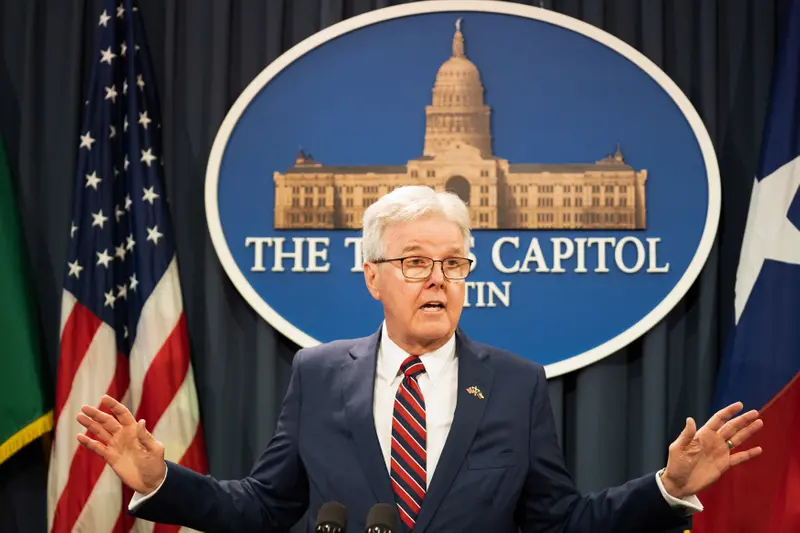After a week’s delay, Texas Lt. Gov. Dan Patrick has forwarded to the governor legislation that aims to increase the transparency of the state’s public records law.
Patrick had been holding up the bill amid increasingly frayed political relations between him and his Republican counterparts in state leadership, House Speaker Dade Phelan and Gov. Greg Abbott.
A priority for Phelan, House Bill 30, filed by Texas Democratic state Rep. Joe Moody, was the only measure out of more than 1,300 bills that Patrick had not signed. That is a requirement before legislation can be sent to the governor.
State law allows government agencies to withhold or heavily redact law enforcement records if a person has not been convicted of a crime or received probation. If approved by Abbott, the bill would close a long-standing loophole in the law that government agencies have used to withhold information in situations in which suspects die in police custody, are killed by law enforcement or kill themselves, as ProPublica and The Texas Tribune reported last month.
Phelan publicly expressed support for closing the loophole after advocates and families raised concerns that government entities might use it to keep secret information about the dead shooter in the massacre at an elementary school in Uvalde, Texas.
On Tuesday, near the end of a news conference that Patrick mostly spent lambasting Phelan and Abbott’s plans for cutting property taxes, the lieutenant governor offered his reason for the delay.
Patrick told reporters that the Senate agreed to pass the transparency bill on the condition that the House pass a measure that would reform how complaints can be filed against Texas judges, including requiring people to make sworn statements in order to file grievances.
After learning that the judicial conduct measure failed, Patrick accused the House of “playing games.” He said he pulled Moody’s bill out of a stack that he was slated to sign. “I said: ‘What’s that bill all about? Let me see that bill.’”
Patrick said he “stuck” the legislation on his podium, where it remained for days. He told reporters Tuesday that he’d always planned to sign it. The lieutenant governor’s office did not respond to additional questions.
Phelan’s communications director, Cait Wittman, said the delay “absolutely is political.”
“The bottom line, he has a constitutional duty to sign this bill,” Wittman said. “You don’t make deals off the constitution.”
Wittman also accused Senate officials of initially lying about what happened to the bill by blaming the House. A Senate journal clerk told Austin television station KXAN last week that the House never delivered the bill to the Senate. House officials maintained the bill made it to the Senate for signature.
Moody declined to publicly comment on the bill’s status until after the legislation was en route to the governor’s office Tuesday. In a statement to ProPublica and the Tribune, Moody did not address the delay, focusing instead on the eight years he’s spent trying to close this loophole.
“I don’t mind waiting another week for the bill to come to the governor as long as Texas families don’t have to wait any longer for the answers they deserve,” Moody said in the statement. “I appreciate Speaker Phelan making it a priority to shine this light on something that should never be in the dark in a free society.”

















